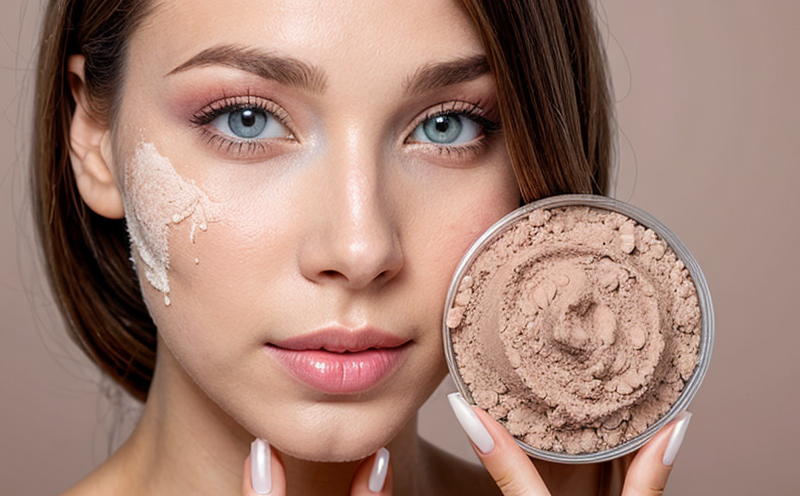Anisyl Alcohol Sensitization Testing in Cosmetics
The testing of allergens and sensitizers is a crucial part of cosmetic product development. Anisyl alcohol, also known as 4-tert-butylphenol, is a widely used preservative and stabilizer in cosmetics due to its antimicrobial properties. However, like many chemicals, anisyl alcohol can cause skin irritation or allergic reactions when present in concentrations that exceed safety limits. To ensure consumer safety and compliance with international standards, it is imperative for manufacturers to conduct thorough sensitization testing.
The primary purpose of anisyl alcohol sensitization testing in cosmetics is to determine the level at which this chemical may trigger an allergic response. This test helps identify potential allergens early in the product development process, allowing companies to adjust formulations and avoid unwanted side effects that could harm their reputation or lead to legal issues.
Testing typically involves exposing human volunteers to different concentrations of the substance over a period of time, monitoring for any signs of irritation or adverse reactions. The test results are then analyzed according to specific guidelines set forth by international standards such as ISO 10993-14 and ASTM E844. Compliance with these standards ensures that the product meets stringent safety requirements before it reaches the market.
The process of conducting anisyl alcohol sensitization testing requires careful preparation and handling. Specimen preparation includes diluting the chemical in a suitable vehicle, applying it to the test subject’s skin according to standardized protocols, and monitoring for any adverse effects. Proper instrumentation is essential for accurate measurement and observation during the test.
Once completed, the results must be thoroughly analyzed and reported. The report should include detailed information about the concentration used, the duration of exposure, observed reactions, and a conclusion regarding compliance with relevant standards. Clear communication between all parties involved in the testing process is vital to ensure accurate interpretation of the data.
In addition to protecting consumers from potential harm caused by sensitizing agents like anisyl alcohol, this type of testing also supports broader industry goals related to safety and quality assurance. By identifying issues early on, manufacturers can improve their products while maintaining a high level of trust among customers who value both efficacy and safety.
Benefits
The benefits of conducting anisyl alcohol sensitization testing extend beyond mere compliance with regulations. It provides valuable insights into the safety profile of a product, helping manufacturers make informed decisions about ingredient selection and formulation adjustments. By identifying potential allergens early on, companies can mitigate risks associated with consumer complaints or legal actions.
Moreover, successful completion of such tests enhances brand reputation by demonstrating commitment to quality and safety standards. Consumers today are increasingly aware of the importance of choosing products that do not pose health hazards. A positive outcome from anisyl alcohol sensitization testing reassures them about their choice, fostering long-term loyalty.
Safety is paramount in any industry dealing with consumer goods. Ensuring that your cosmetic products meet stringent safety requirements through rigorous testing not only protects users but also contributes positively to the overall health and well-being of society at large.
International Acceptance and Recognition
The importance of anisyl alcohol sensitization testing is widely recognized across various international standards organizations. The International Organization for Standardization (ISO) has established guidelines in its publication ISO 10993-14, which outlines procedures for determining the sensitizing potential of chemicals used in medical devices and similar products. Similarly, ASTM International provides recommendations in their standard E844.
These standards serve as benchmarks for industries worldwide, ensuring consistency and reliability in testing practices. Adoption by regulatory bodies ensures that consumers receive consistent protection regardless of geographical location or jurisdictional differences.
Environmental and Sustainability Contributions
- The use of anisyl alcohol in cosmetics helps prevent bacterial contamination which can lead to waste from contaminated products being discarded prematurely. By ensuring product integrity, this reduces unnecessary disposal, thereby contributing positively to environmental sustainability.
- Identifying sensitizers early through rigorous testing allows for formulation improvements that reduce the overall environmental impact associated with manufacturing and using potentially harmful substances.
In summary, anisyl alcohol sensitization testing plays a critical role in promoting both consumer health and environmental responsibility within the cosmetic industry. Its implementation reflects ongoing efforts towards creating safer, more sustainable products that meet global expectations for quality and safety.





